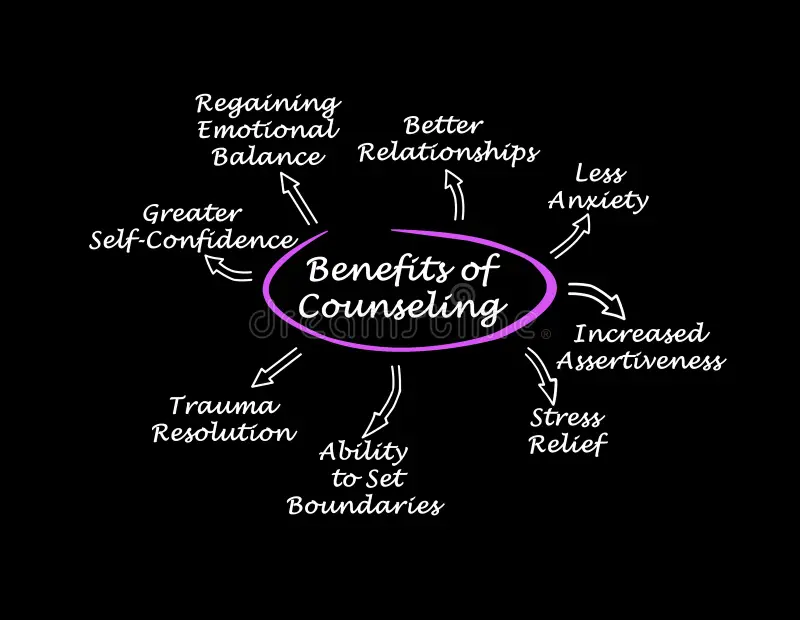In-Person Therapy: Which Is More Effective for You?
Therapy has become an essential part of mental health care for millions of people around the world. Whether someone is struggling with anxiety, depression, relationship issues, trauma, or just navigating life’s challenges, talking to a mental health professional can make a huge difference. With advancements in technology, people now have the option to choose between in-person therapy and online therapy. While both methods have their own advantages, in-person therapy continues to hold a special place in mental health care.
This blog will focus on in-person therapy. It will explore what in-person therapy involves, why it matters, its unique benefits, and how to decide if it is the right choice for you. The content is written in a simple and engaging style to help you understand whether this traditional approach to therapy aligns with your needs.
What Is In-Person Therapy
In-person therapy is the traditional form of psychotherapy where clients meet with their therapist face-to-face in a private and confidential setting. These sessions typically take place in a therapist’s office and usually last about 45 to 60 minutes. The setting is designed to be safe and supportive, helping clients feel comfortable as they discuss personal and emotional issues.
During in-person therapy, both the client and the therapist are physically present in the same room. This allows for real-time interaction and the use of verbal and non-verbal communication cues, such as facial expressions, body language, and tone of voice. These subtle aspects can be very helpful in building trust and understanding between the therapist and the client.
In-person therapy can be used to address a wide range of mental health issues. Therapists may use different therapeutic approaches based on the client’s needs. These can include cognitive behavioral therapy, psychodynamic therapy, humanistic therapy, and many others. The core aim is to help the individual gain insight, develop coping skills, and make positive changes in their life.
Why In-Person Therapy Matters

In a world where virtual communication has become the norm, some people may wonder why in-person therapy still matters. The answer lies in the depth of connection and the therapeutic environment it offers.
When you walk into a therapist’s office, you step into a space dedicated solely to your emotional and psychological well-being. This physical separation from your home or work environment can make it easier to open up and focus on healing. Being in a therapist’s presence creates a sense of accountability and seriousness that can enhance the effectiveness of therapy.
In-person therapy allows therapists to observe non-verbal cues, such as posture, eye contact, and emotional expressions. These cues often provide valuable insights into a client’s thoughts and feelings, which may not always be communicated through words alone. This added layer of communication can lead to more accurate assessments and deeper understanding.
For people who are dealing with severe mental health issues, such as trauma, substance use disorders, or complex emotional challenges, addiction treatment in Pennsylvania can provide the structured and stable environment needed for recovery. The structured and stable environment of in-person therapy, including addiction treatment in Pennsylvania, offers extra support by establishing a consistent physical location where therapy takes place, helping individuals build a sense of routine and security.
The Importance of Face-to-Face Interaction
Human beings are social creatures, and much of our communication happens through non-verbal means. In-person therapy takes full advantage of this by allowing face-to-face interaction that strengthens the therapeutic relationship.
When you sit across from someone who is fully present with you, it creates a sense of being seen, heard, and understood. This connection is the foundation of effective therapy. Building a strong therapeutic alliance can significantly improve outcomes because it fosters trust and cooperation.
The therapist can also provide immediate feedback and adjust their approach based on your responses. If you become upset or anxious during a session, the therapist can recognize these signals and help you manage them in real time. This responsiveness contributes to a more personalized and supportive experience.
Some people may feel more emotionally safe when they are physically in the presence of a trained professional. Knowing that someone is there to guide and support you through difficult emotions can make the healing process feel less overwhelming.
Benefits of In-Person Therapy

One of the main benefits of in-person therapy is the immersive environment. Being in a therapist’s office allows you to step away from daily distractions and focus entirely on your mental health. The quiet and neutral space promotes concentration and emotional openness.
Another benefit is the stronger sense of connection. Eye contact, physical presence, and shared energy help create a genuine relationship between the client and the therapist. This connection can enhance feelings of empathy and validation, which are key elements in effective therapy.
In-person therapy also provides consistency and structure. Regularly scheduled appointments in a set location help establish a routine. For individuals dealing with anxiety or depression, having a predictable schedule can be comforting and stabilizing.
Therapists in an in-person setting are often better able to assess mood changes, body language, and other subtle indicators of mental health. This can lead to more accurate diagnoses and treatment plans. It also allows for a greater range of therapeutic techniques, including those that involve physical movement or creative expression.
Some therapies, such as art therapy, play therapy for children, or exposure therapy for certain phobias, are more effective or only possible in person. The hands-on aspect of these therapies enhances their impact and helps individuals engage more fully in the healing process.
For individuals who struggle with creating boundaries at home or have difficulty maintaining privacy in a virtual setting, in-person therapy offers a private and confidential environment. This can make it easier to discuss sensitive topics without the fear of being overheard or interrupted.
When In-Person Therapy May Be Most Effective
In-person therapy can be particularly effective for individuals with serious mental health conditions. Those experiencing suicidal thoughts, self-harm behaviors, or severe depression may require the immediate attention and close observation that in-person therapy provides.
People recovering from addiction may also benefit more from in-person therapy. The structured setting, accountability, and strong therapeutic relationship can support long-term recovery. Some treatment centers for Addiction Treatment In Pennsylvania, for example, emphasize the value of face-to-face sessions as part of a comprehensive care plan.
Children and adolescents often respond better to in-person therapy, especially when the therapy involves play or interaction with materials. Young clients may find it hard to engage through a screen, making in-person sessions more suitable for their developmental needs.
Couples or family therapy sessions can also benefit from in-person interaction. Being in the same room helps participants pick up on each other's emotional cues and communicate more effectively. The therapist can guide the conversation in real time and address conflicts as they arise.
How to Choose the Right Therapist for In-Person Sessions

Finding the right therapist is a key step in making in-person therapy effective. It is important to look for a licensed professional with experience in the area you want to work on. You can find therapists through online directories, recommendations from healthcare providers, or community mental health centers.
When choosing a therapist, consider factors such as their approach, availability, location, and how comfortable you feel during initial conversations. Trust your instincts. Feeling safe and respected by your therapist is essential for the process to work.
Make sure the therapist offers in-person sessions and that their office is accessible to you. Some therapists offer a mix of in-person and virtual appointments, so you can choose what works best for you.
During your first few sessions of addiction treatment in Pennsylvania, take note of how the therapist interacts with you, how well they listen, and whether their style matches your preferences. Therapy is a collaborative process, especially in addiction treatment in Pennsylvania, and having a strong connection with your therapist can significantly enhance the experience and outcomes.
Overcoming Barriers to In-Person Therapy
Despite its many advantages, some people face obstacles when trying to access in-person therapy. These may include cost, transportation, scheduling conflicts, or a lack of nearby therapists.
To address these barriers, some clinics offer sliding scale fees based on income or accept insurance plans. Community centers and non-profit organizations may also provide affordable in-person therapy options.
If transportation is a challenge, consider therapists who are located near your workplace or home. Some clinics are accessible by public transportation, which can make attending sessions more manageable.
For those with busy schedules, evening and weekend appointments can be helpful. It’s also worth discussing flexible scheduling options with your therapist.
In some cases, starting with online sessions and transitioning to in-person therapy can help ease the adjustment and make the process less overwhelming.
The Role of Commitment in In-Person Therapy

Therapy is most effective when approached with commitment and consistency. In-person therapy requires you to show up regularly and engage actively in the process. This ongoing effort builds momentum and allows for deeper exploration of thoughts and emotions.
Attending sessions in person may also strengthen your sense of responsibility and motivation. Making the effort to travel to your therapist’s office demonstrates a willingness to invest in your mental health, which can lead to greater results.
Being consistent with therapy helps build trust with your therapist and gives you the opportunity to track your progress over time. Even when sessions feel challenging or emotional, showing up each week reinforces your dedication to healing and growth.
Conclusion
In-person therapy offers a rich and supportive environment for mental health treatment. It allows for deep human connection, effective communication, and the use of a wide range of therapeutic techniques. For many people, the structure, presence, and personalized attention of in-person therapy make it an ideal choice.
Whether you are new to therapy or considering switching from online sessions, in-person therapy may provide the support and space you need to heal and grow. Choosing the right approach depends on your preferences, needs, and circumstances. If you value face-to-face connection and a dedicated therapeutic space, in-person therapy might be the most effective path for you.
.jpeg)


